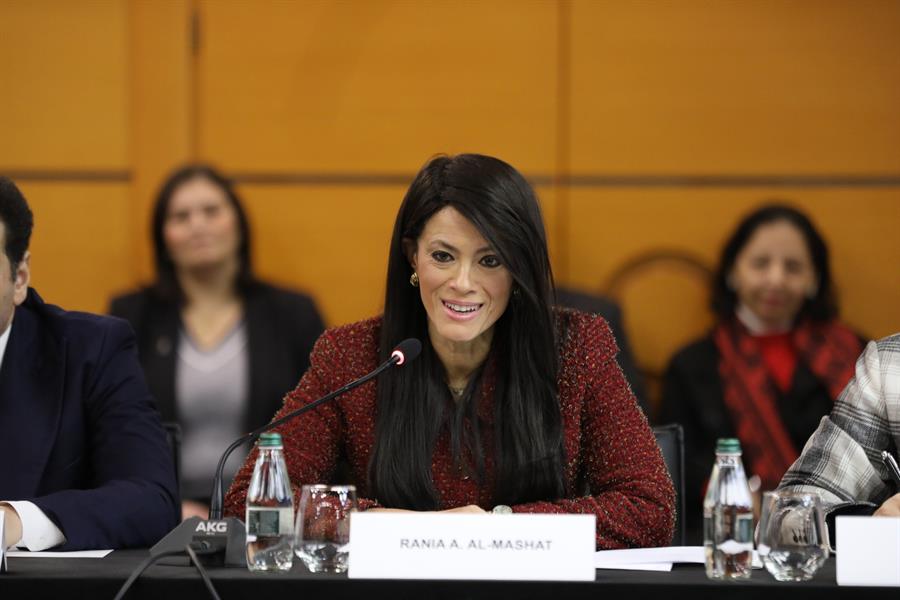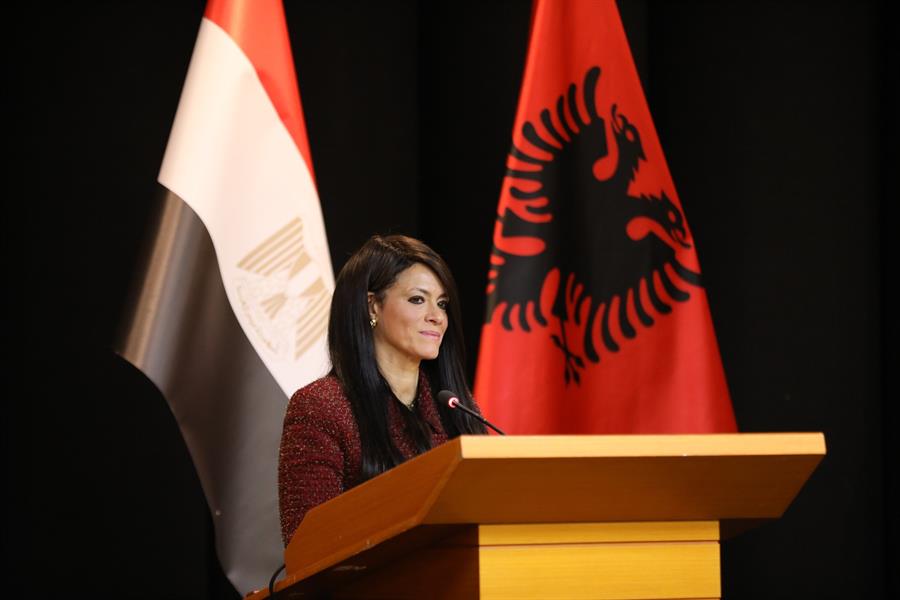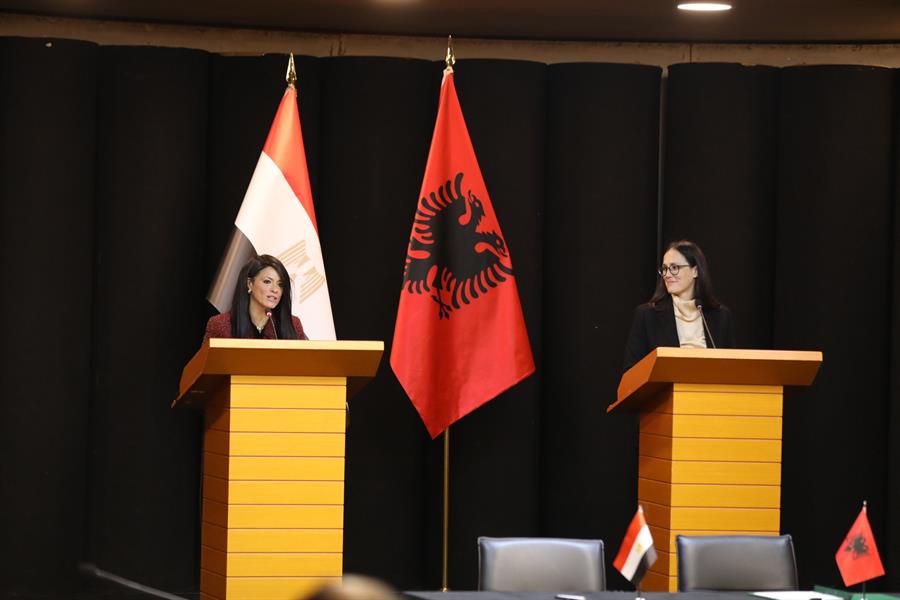Egypt’s Minister of Planning and Economic Development discusses the draft state general planning bill before the Senate’s financial committee

02 November 2021
Dr. Hala El-Said, Minister of Planning and Economic Development, discussed the state’s general planning bill before the Senate Financial and Economic Affairs Committee, in the presence of Counselor Alaa El-Din Fouad, Minister of Parliamentary Affairs, members of the Financial and Economic Affairs Committee headed by Prof. Dr. Hani Sarie El-Din, and members Housing, Local Administration and Transport Committee headed by Major General Khaled Mohamed Saeed.During the meeting, El-Said pointed out the most important features of the new draft law, represented in the following: The establishment of a Supreme Council for Planning and Sustainable Development headed by the President of the Republic, whose goal is to coordinate and cooperate between the authorities concerned with planning and development to enable the implementation of the benefits of the Sustainable Development Strategy: Egypt 2030.The new draft law also sets a group of planning principles that reflect the constitutional entitlements stipulated in the 2014 constitution and the developments in planning science, including, for example, sustainability, diversity, flexibility, balanced development, participation, and openness to society, and encouraging innovation.El-Said added that the draft law enhances the ability of the ministry concerned with planning affairs to carry out the monitoring and evaluation function of plans and projects at the central and local levels, and obliges ministries and planning authorities at local levels to submit follow-up reports to projects regularly to ensure enhanced efficiency and effectiveness. The draft law is also consistent with the articles of the constitution related to the local administration system and decentralization, as the project enables local units to prepare their development plans at different levels, and gives them the freedom and flexibility necessary to implement these plans, and also encourages them to mobilize more financial resources and direct them to develop investment projects.El-Said explained that the draft law specified the detailed planning methodology for preparing plans at the national, regional, and local levels while defining the roles played by all relevant parties in a clear and disciplined manner.
El-Said added that the most important characteristic of this draft law is that the process of preparing it came in coordination with all ministries and relevant authorities, foremost of which is the Ministry of Local Development, where a committee was formed to coordinate between the ministries of planning and local development to ensure consistency and coherence between the local administration law and the general planning law.El-Said reviewed the state’s efforts to develop the planning system in general, stressing that the work on issuing the state’s general planning law is paralleled by the quest and unremitting efforts of the state for comprehensive development of the development planning system in Egypt, led by the Ministry of Planning and Economic Development in coordination with all ministries and relevant authorities.The process of developing the planning system is based on several main principles and foundations, the most important of which are: ensuring a participatory approach in the planning process with the involvement of all parties or what is called the golden triangle of development (government - the private sector - civil society), planning from the bottom up, which contributes to the precise identification to the needs of citizens.El-Said added that the principles also include supporting the institutional framework for the planning and follow-up process, and this began with the issuance of Prime Minister's Decision No. 1146 of 2018 to create and develop six organizational divisions in all units of the state's administrative apparatus, including the Strategic Planning and Policies Unit.El-Said explained that for the first time, a fair financing formula was developed for the distribution of investments, which was prepared in coordination and cooperation with the relevant ministries and local and international development partners, through which local development programs and investments are distributed based on several indicators such as population density - poverty indicators - unemployment indicators and developmental gaps. El-Said referred to diversifying sources of funding by encouraging the participation of the private sector in development projects and paying attention to measuring the economic feasibility of the implemented development projects, by establishing a feasibility studies unit and partnership with the private sector and civil society in the Ministry of Planning and Economic Development.El-Said shed light on the localization of the sustainable development goals to maximize the benefit from the relative advantages of the Egyptian governorates and regions, and direct investments within the framework of the state’s general plan more efficiently and effectively, with a focus on the governorates that have larger development gaps according to the idea of targeting. El-Said noted the implementation of the Programs and Performance Plan methodology: which the state is expanding in its application starting from the fiscal year 2017/2018 plan, and helped bring about a qualitative shift in the content of the plan, to be a comprehensive sustainable development plan, and helped in the plan to include development performance indicators other than the indicators that measure Accuracy of financial planning, in addition to the government performance follow-up system "Adaa".Dr. Hala El-Said pointed to the integration of the dimensions of environmental sustainability in development projects, by including the environmental dimension in all investment projects in the state's economic and social development plan, where it was agreed between the Ministry of Planning and Economic Development and the Ministry of Environment to achieve 30% of investment projects for the concepts of environmental sustainability and green economy.









